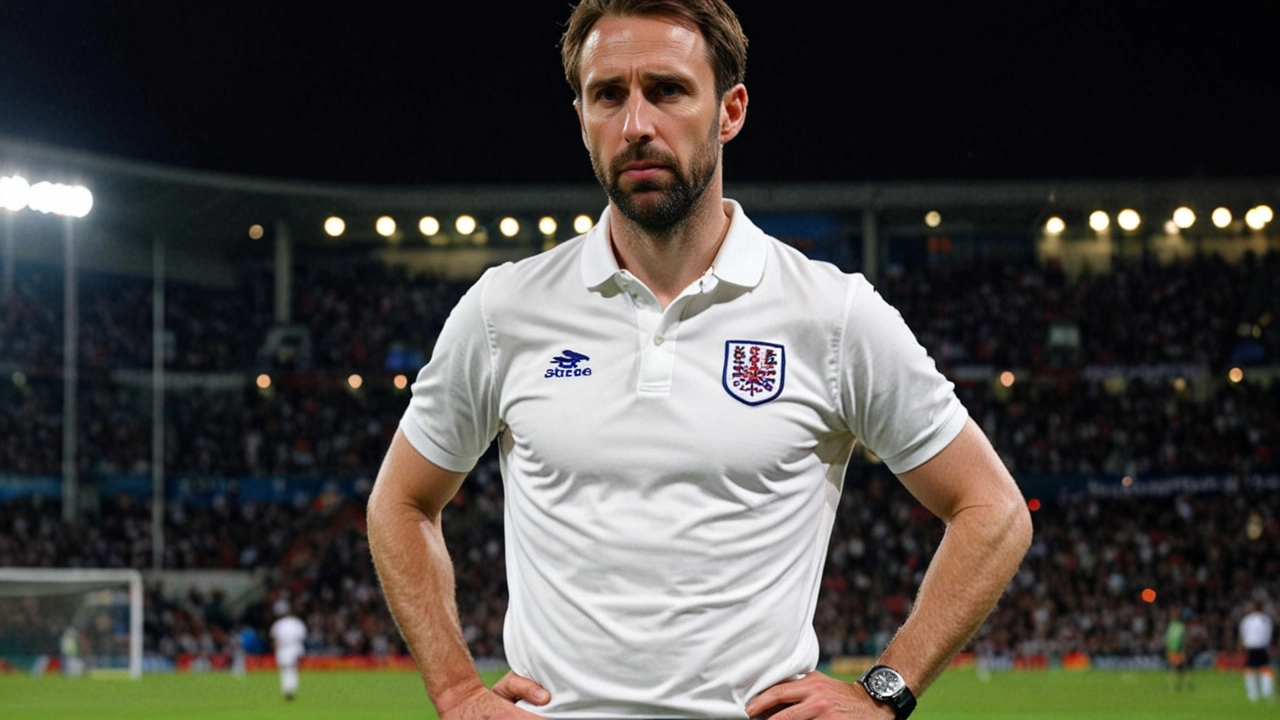
Gareth Southgate's Controversial Decisions: The Decline of Trust in England's Manager
The curtain closed on England's Euro 2024 journey with disappointment, a sentiment that was echoed not just across the nation, but within the team itself. Leading the squad to a painstaking defeat against Spain in the finals, Gareth Southgate, who had once enjoyed the unwavering support of fans and pundits alike, now faces growing criticism and calls for his departure. This wave of scrutiny stems from several factors – not least his handling of star player Jordan Henderson, his contentious team selections, and his perceived mismanagement of exceptional talents like Trent Alexander-Arnold.
The Jordan Henderson Saga
Southgate’s reputation took a significant hit following his public handling of Jordan Henderson. The former Liverpool captain made a high-profile move to the Saudi Pro League, and this decision was not well-received by a section of the England supporters. During subsequent international fixtures, Henderson found himself in an unfamiliar situation – being booed by the fans he once inspired. Instead of acknowledging the fans' disappointment or addressing the underlying issues behind their reaction, Southgate opted to criticize them for their response. This not only alienated him further from the supporters but also cast a shadow over his judgment as a leader. The manner in which Southgate dealt with Henderson’s situation highlighted a possible disconnect between him and the fans, further exacerbating the brewing discontent.
Questionable Team Selections and Tactics
The final loss to Spain reignited debates regarding Southgate’s team selections and tactical acumen. Critics argue that his steadfast loyalty to underperforming players like Harry Kane, Kyle Walker, Phil Foden, and Declan Rice has been one of the significant drawbacks of his tenure. These players, despite their known calibre, struggled to make a meaningful impact during crucial matches, leading to questions about Southgate's judgment. On the flip side, deserving talents like Ollie Watkins and Cole Palmer found themselves marginalized, a move many felt was unjust. Watkins, in particular, was in formidable form throughout the club season, yet saw limited game time under Southgate. Similarly, Cole Palmer’s creativity and flair were attributes that England desperately needed, but he remained largely on the sidelines. This discrepancy between club and international form raised eyebrows and sparked conversations about potential biases or perhaps a rigidity in Southgate's approach.
The Trent Alexander-Arnold Conundrum
Among the most perplexing decisions Southgate has made pertains to Trent Alexander-Arnold. Recognized globally for his exceptional talent, versatility, and match-winning capabilities, Alexander-Arnold’s sporadic appearances for the national team left many baffled. Southgate’s preference for a more traditional defensive setup often meant that the Liverpool right-back, known for his attacking prowess and creative play, was not utilized to his fullest potential. This hesitance to integrate a player of Alexander-Arnold’s calibre regularly into the starting XI fed into the narrative of Southgate’s conservative approach, contrasting sharply with the progressive styles seen in top-tier club football.
Time for Change?
Gareth Southgate's tenure with the England team has been a rollercoaster of highs and lows. From the euphoric run to the World Cup semi-finals in 2018 to the near glory of the Euro 2020 finals, his leadership has seen the rejuvenation of national pride. However, the recent controversies and criticisms pose a challenging question: has his tenure run its course? Many believe that a fresh perspective might be what's needed for England to capitalize on its pool of talent and overcome the final hurdles in major tournaments. Southgate’s insistence on certain players and tactical rigidity, juxtaposed with his handling of off-field issues, might indicate that the team needs a new direction.
As nations prepare for the next World Cup qualifiers, the Football Association finds itself at a crossroads. Should they continue with Southgate and hope he can adapt and evolve, or should they seek new leadership that better understands the modern dynamics of the game? This decision will undoubtedly shape the future trajectory of England’s national team.